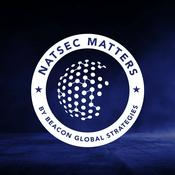Today’s Local Environment—The Compliance Podcast

9 Episoden

Sensing a Change in the Air: How Local Governments Can Respond and Adapt to Shifts in Air Quality Monitoring Technology
20.7.2023 | 39 Min.
Recent wildfire smoke events have highlighted the value of air quality measurement. But how does it really work, anyways? From the latest technologies and regulations to the unique challenges faced by local governments and Tribes, this week's guests discuss the transforming landscape of air quality monitoring. Join hosts Georgia Ray and Ella Stack and guests Chet Wayland from the EPA, Christopher Lee from Tribal Air Monitoring Support Center, and Miles Keogh from the National Association of Clean Air Agencies for the discussion. This episode was completed in partnership with ELI's People Places Planet Podcast. In This Episode We Cover: · How the onset of new monitoring and data technologies is shifting the air monitoring paradigm · What the surge in air quality participatory science means for rulemaking · Why local governments and Tribes are so well situated to address air pollution Hosts: Georgia Ray and Ella Stack, Environmental Law Institute Guests: Chet Wayland, EPA, Christopher Lee, Tribal Air Monitoring Support Center, and Miles Keogh, National Association of Clean Air Agencies

Building the Water Workforce: Recruiting and Retaining the Next Generation of Utility Workers
17.2.2023 | 49 Min.
The water sector has untapped potential for Americans looking for a fulfilling career working with ever-advancing technologies and serving the public. Building this pipeline is increasingly critical as long-time workers retire and others leave the industry, with repercussions for communities across the nation—particularly in our smaller towns and rural areas. How can drinking water utilities and local governments attract and train a diverse, skilled workforce and adapt to retain these new employees over the long term? Join ELI’s Cynthia R. Harris and Ella Stack in a conversation with Shannon Walton (National Rural Water Association), Connie Stevens (Alliance of Indiana Rural Water) and Sophia Overton (Del Mar Water Treatment Department) for a look at how the industry is changing, the invaluable role of apprenticeships to the sector’s future, and how water utilities can help build the next generation of utility workers. Hosts: Cynthia R. Harris & Ella Stack, Environmental Law Institute Guests: Shannon Walton, National Indiana Rural Water, Connie Stevens, Alliance of Indiana Rural Water & Sophia Oberton, Del Mar Water Treatment Department In This Episode We Cover: Who the “water workforce” includes and what these roles entail in an evolving field The certification, licensing, and training processes required to become a water or wastewater operator How the water sector is responding to and maximizing technological advancements Steps utilities can take to recognize the value of a diverse workforce and improve representation in the field Advice for improving succession planning and retention How utility companies can take advantage of and start their own apprenticeship programs Additional Resources: National Rural Water Association Alliance of Indiana Rural Water Del Mar Water Treatment Department LGEAN Wastewater LGEAN Drinking Water LGEAN Stormwater EPA resources on Safe Drinking Water Act Operator Certification Renewing the Water Workforce study Water and Wastewater Treatment Plant and System Operators: Occupational Outlook Handbook: U.S. Bureau of Labor Statistics (bls.gov) World Toilet Day World Water Day

Climate and the Community: Centering Equity in Vulnerability Assessments
10.10.2022 | 43 Min.
The LA County Chief Sustainability Office set out in 2020 to accomplish a monumental task: assess the risks and challenges that a changing climate will bring to over 10 million people and physical infrastructure spanning 182 square miles—while incorporating the needs and priorities of the County’s most vulnerable populations. The result of this collaboration with Climate Resolve is the County of Los Angeles Climate Vulnerability Assessment (CVA), an impressive document that centers equity and represents extensive community outreach. ELI’s own Cynthia R. Harris sits down with LA County’s Sustainability Program Director Kristen Torres Pawling and Climate Resolve’s Director of Climate Planning and Resilience Natalie Hernandez to walk through LA County’s experience and learn how every municipality, large or small, can learn from LA County’s experience in carrying out their own equity-centered CVA and prepare to meet their community’s needs in a changing climate. In This Episode We Cover What a Climate Vulnerability Assessment is and why every local government should adopt a CVA Most important components of a strong CVA: physical assessment, social assessment, and cascading impacts Identifying your most vulnerable communities and questioning your assumptions about them Centering equity and effective outreach to your most vulnerable community members Leveraging your CVA to bring in grants and loans to fund critical infrastructure Building strong community partnerships to carry out your CVA and implement your Climate Adaptation Plan And so much more!

Meeting Stormwater Compliance Objectives with Green Infrastructure
09.8.2022 | 46 Min.
Local communities are increasingly turning towards green infrastructure as a cost-effective and successful solution to address the growing challenges presented by stormwater management. Green infrastructure represents a shift away from aging, gray infrastructure (pipes, gutters, and tunnels) and towards systems that mimic nature to sustainably filter stormwater and improve water quality. Localities that have implemented green infrastructure are reaping numerous benefits, such as reduced localized flooding, water quality improvements, climate resiliency, and enhanced community quality of life. It's no surprise the U.S. Environmental Protection Agency (EPA) champions green infrastructure for local jurisdictions to meet Clean Water Act requirements. Join ELI’s Linda Breggin and Shehla Chowdhury in conversation with Jacob Lunn (EPA Water Enforcement Division), Dennis Sayre (environmental engineer at EPA Region 4), and David Johnson (Louisville Metropolitan Sewer District) to learn from these experts how frontline localities successfully implement green infrastructure to generate resilient communities. Hosts: Linda Breggin & Shehla Chowdhury, Environmental Law Institute Guests: Jacob Lunn, EPA, Dennis Sayre, EPA Region 4 & David Johnson, Metropolitan Sewer District of Louisville and Jefferson County Additional Resources: General GI Resources EPA Municipal Ombudsman EPA Permitting and Enforcement Series with case studies and example language EPA Green Infrastructure Modeling Toolkit Transcript available on https://lgean.net/podcasts.php

Compliance Assistance on the Lead Renovation, Repair and Painting Rule (RRP)
09.5.2022 | 17 Min.
Lead-based paint is still present in many houses, apartments, and public buildings, making it a critical issue of health and safety for communities. Lead poisoning can cause permanent damage to a person’s brain, nervous system, and other organs, and is especially hazardous to children and pregnant women. Though the federal government banned lead-based paint in 1978, it is still commonly found in older buildings. The U.S. Environmental Protection (EPA) has adopted the Lead Renovation, Repair, and Painting Rule (RRP Rule) to help prevent further exposures. Join EPA Scientist Carol Baillie, and Mike Wilson, Project Manager for EPA's National Programs Chemical Division, in this episode of Today’s Local Environment—the Compliance Podcast to learn more about how local governments can promote compliance with the RRP rule and protect their residents. Host: Carol Baillie, Physical Scientist, Office of Enforcement and Compliance Assurance, U.S. EPA Guest: Mike Wilson, Project Manager, National Program Chemicals Division, Office of Pollution Prevention and Toxics, U.S. EPA A transcript of this episode is available at https://lgean.net/podcasts.php. Additional Resources: EPA RRP Program Rules EPA RRP Rule Compliance Resources LGEAN’s Materials of Concern Page
Weitere Regierung Podcasts
Trending Regierung Podcasts
Über Today’s Local Environment—The Compliance Podcast
Höre Today’s Local Environment—The Compliance Podcast, No es el fin del mundo und viele andere Podcasts aus aller Welt mit der radio.de-App

Hol dir die kostenlose radio.de App
- Sender und Podcasts favorisieren
- Streamen via Wifi oder Bluetooth
- Unterstützt Carplay & Android Auto
- viele weitere App Funktionen
Hol dir die kostenlose radio.de App
- Sender und Podcasts favorisieren
- Streamen via Wifi oder Bluetooth
- Unterstützt Carplay & Android Auto
- viele weitere App Funktionen


Today’s Local Environment—The Compliance Podcast
App laden,
loshören.





































